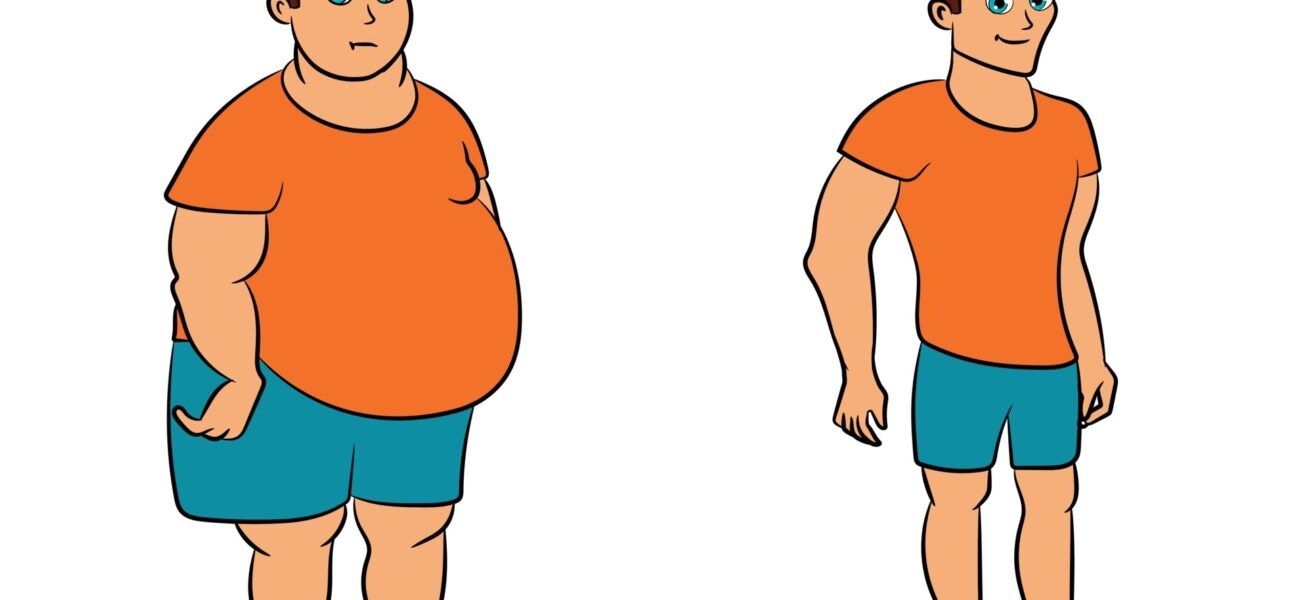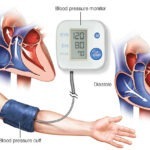Many people wish to enhance their health, attractiveness, and well-being by losing weight. But what exactly is weight loss and how can you achieve it safely and effectively?
In this blog post, we’ll explain what weight loss is, what causes it, what symptoms it may have, and what treatment options are available. We’ll also share some tips and resources to help you reach your weight loss goals.
What is weight loss?
Weight loss is the decrease of your total body mass due to the loss of fluid, body fat, or lean mass (such as muscle, bone, or connective tissue). Weight loss can be deliberate or inadvertent.
Intentional weight loss is when you deliberately try to reduce your body weight by changing your diet, lifestyle, or medical treatment. Intentional weight loss can have many benefits for your health and well-being, such as:
• Lowering your risk of chronic diseases such as diabetes, heart disease, stroke, and some cancers
• Improving your blood pressure, blood sugar, blood cholesterol, and inflammation levels
• Enhancing your physical fitness, mobility, strength, and endurance
• Boosting your mood, self-esteem, confidence, and quality of life
Unintentional weight loss is when you lose weight without trying or without knowing the reason. Unintentional weight loss can be a sign of an underlying medical condition or a side effect of a medication. Unintentional weight loss can have negative consequences for your health and well-being, such as:
• Increasing your risk of malnutrition, dehydration, electrolyte imbalance, and infections
• Reducing your muscle mass, bone density, and immune function
• Worsening your existing medical conditions or causing new ones
• Affecting your mental health, mood, cognition, and memory
What causes weight loss?
Weight loss is caused by a negative energy balance, meaning you burn more calories than you consume. Calories are the energy units that your body requires to carry out its operations and activities. Your calorie intake comes from the food and drinks you consume, while your calorie expenditure comes from your basal metabolic rate (BMR), physical activity, and thermic effect of food (TEF). Your BMR is the amount of calories your body burns at rest to maintain its vital functions, such as breathing, circulation,and temperature regulation. Your BMR depends on factors such as your age, gender, weight, height, body composition, and genetics. Your physical activity is the amount of calories your body burns during any movement, such as walking, running, lifting, or playing sports. Your physical activity depends on factors such as your frequency, intensity, duration, and type of exercise. Your TEF is the amount of calories your body burns to digest, absorb, and metabolize the food you eat. Your TEF depends on factors such as the quantity, quality, and composition of your food. To lose weight intentionally, you need to create a calorie deficit by consuming fewer calories than you burn or burning more calories than you consume or both. A safe and sustainable calorie deficit is around 500 calories per day or 3500 calories per week which can result in an average weight loss of one pound per week. To lose weight unintentionally, you may have a medical condition that affects your appetite digestion absorption metabolism hormones or immune system.
Some examples of medical conditions that can cause unintentional weight loss are:
• Cancer
• Diabetes
• Hyperthyroidism
• Celiac disease
• Crohn’s disease
• Ulcerative colitis
• HIV/AIDS
• Tuberculosis
• Depression
• Anxiety
You may also have a medication that affects your appetite Digestion absorption metabolism hormones or immune system. Some examples of medications that can cause unintentional weight loss are:
• Chemotherapy drugs
• Antidiabetic drugs
• Thyroid hormones
• Antidepressants
• Antianxiety drugs
• Antibiotics
What are the symptoms of weight loss?
The symptoms of weight loss depend on the amount Rate and cause of weight loss. Some common symptoms of weight loss are:
• Changes in your body shape and size such as losing inchesor clothing sizes or noticing loose skin or sagging breasts
• Changes in your body composition such as losing muscle mass or bone density or increasing body fat percentage
• Changes in your physical performance such as feeling weaker or slower or more tired or having difficulty with daily activities or exercise
• Changes in your vital signs such as having lower blood pressure or pulse rate or body temperature or having a higher respiratory rate or oxygen consumption.
• Changes in your blood tests such as having lower blood sugar or cholesterol or hemoglobin levels or having higher ketone levels or liver enzymes.
• Changes in your mental health such as feeling happier or more confident or motivated (intentional weight loss) or feeling sad or anxious or stressed (unintentional weight loss).
What are the treatment options for weight loss?
The treatment options for weight loss depend on the cause and goal of weight loss. If you want to lose weight intentionally for health or cosmetic reasons, you need to follow a healthy diet and lifestyle that creates a calorie deficit and supports your nutritional needs. Some examples of healthy diet and lifestyle changes for intentional weight loss are:
• Eating more fiber-rich foods, such as fruits, vegetables, whole grains, beans, nuts, and seeds
• Drinking more water and less sugary drinks, such as soda, juice, and sports drinks
• Cutting back on refined carbs and processed foods, such as white bread, white rice, pastries, cookies, cakes, candy, and chips
• Exercising regularly, including both aerobic and strength training activities
• Tracking your calories and macros using an app or a journal
• Planning your meals and snacks ahead and preparing them in advance
• Practicing mindful eating by paying attention to your hunger, fullness, emotions, and environment while eating If you have unintentional weight loss due to a medical condition or a medication, you need to consult your doctor for diagnosis and treatment. Depending on the cause and severity of your weight loss, your doctor may prescribe you medications, supplements, or dietary changes to help you regain your weight and treat your underlying condition.
Some examples of medical treatments for unintentional weight loss are:
• Chemotherapy or radiation therapy for cancer
• Diabetes can be treated with insulin or oral hypoglycemic medications.
• Thyroid hormone replacement for hyperthyroidism
• Gluten-free diet for celiac disease
• Anti-inflammatory drugs or immunosuppressants for Crohn’s disease or ulcerative colitis
• Antiretroviral therapy for HIV/AIDS
• Antibiotics for tuberculosis
• Antidepressants or antianxiety drugs for depression or anxiety Conclusion Many people wish to enhance their health, attractiveness, and well-being by losing weight.
But what exactly is weight loss and how can you achieve it safely and effectively?
Weight loss is the decrease of your total body mass due to the loss of fluid, body fat, or lean mass. Weight loss can be deliberate or inadvertent. Intentional weight loss is when you deliberately try to reduce your body weight by changing your diet, lifestyle, or medical treatment. Intentional weight loss can have many benefits for your health and well-being, such as lowering your risk of chronic diseases, improving your blood pressure, blood sugar, blood cholesterol, and inflammation levels, enhancing your physical fitness, mobility, strength, and endurance, boosting your mood, self-esteem, confidence, and quality of life. Unintentional weight loss is when you lose weight without trying or without knowing the reason. Unintentional weight loss can be a sign of an underlying medical condition or a side effect of a medication. Unintentional weight loss can have negative consequences for your health and well-being, such as increasing your risk of malnutrition, dehydration, electrolyte imbalance, and infections, reducing your muscle mass, bone density, and immune function, worsening your existing medical conditions or causing new ones, affecting your mental health, mood, cognition, and memory. The treatment options for weight loss depend on the cause and goal of weight loss. If you want to lose weight intentionally for health or cosmetic reasons, you need to follow a healthy diet and lifestyle that creates a calorie deficit and supports your nutritional needs.
Some examples of healthy diet and lifestyle changes for intentional weight loss are:
• Eating more fiber-rich foods, such as fruits, vegetables, whole grains, beans, nuts, and seeds.
• Drinking more water and less sugary drinks, such as soda, juice, and sports drinks.
• Cutting back on refined carbs and processed foods, such as white bread, white rice, pastries, cookies, cakes, candy, and chips.
• Exercising regularly, including both aerobic and strength training activities.
• Tracking your calories and macros using an app or a journal.
• Planning your meals and snacks ahead and preparing them in advance.
• Practicing mindful eating by paying attention to your hunger, fullness, emotions, and environment while eating.
If you have unintentional weight loss due to a medical condition or a medication, you need to consult your doctor for diagnosis and treatment. Depending on the cause and severity of your weight loss, your doctor may prescribe you medications, supplements, or dietary changes to help you regain your weight and treat your underlying condition. We hope this blog post has helped you understand what weight loss is and how to do it in a safe and effective manner. Remember that losing weight is not easy but it is possible with the right approach and support. If you have any questions or concerns about your weight or health please contact your doctor or a registered dietitian for professional advice.



